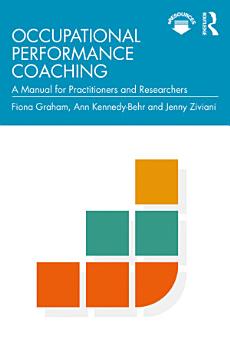Occupational Performance Coaching: A Manual for Practitioners and Researchers
About this ebook
Supporting people affected by disability to do well and live the life they want is the ultimate outcome of all rehabilitation professionals, no matter where on the lifespan our clients sit. Coaching is increasingly recognised as highly effective in achieving this aim. This accessible manual provides case examples related to diverse health conditions alongside practitioner reflections. Uniquely, this manual presents coaching methods designed specifically for the rehabilitation environment.
This book is a manual for practitioners, researchers, students, and lecturers interested in gaining a robust understanding of OPC methods, theoretical basis, and implementation.
An e-Resource linked to the book provides access to video demonstrations, a podcast from Dr Graham, and downloadable materials including a self-assessment of OPC skills (OPC Fidelity Measure), templates for clinical work, and teaching presentation material. You can access this eResource via http://resourcecentre.routledge.com/books/9780367427962
Ratings and reviews
- Flag inappropriate
- Show review history





